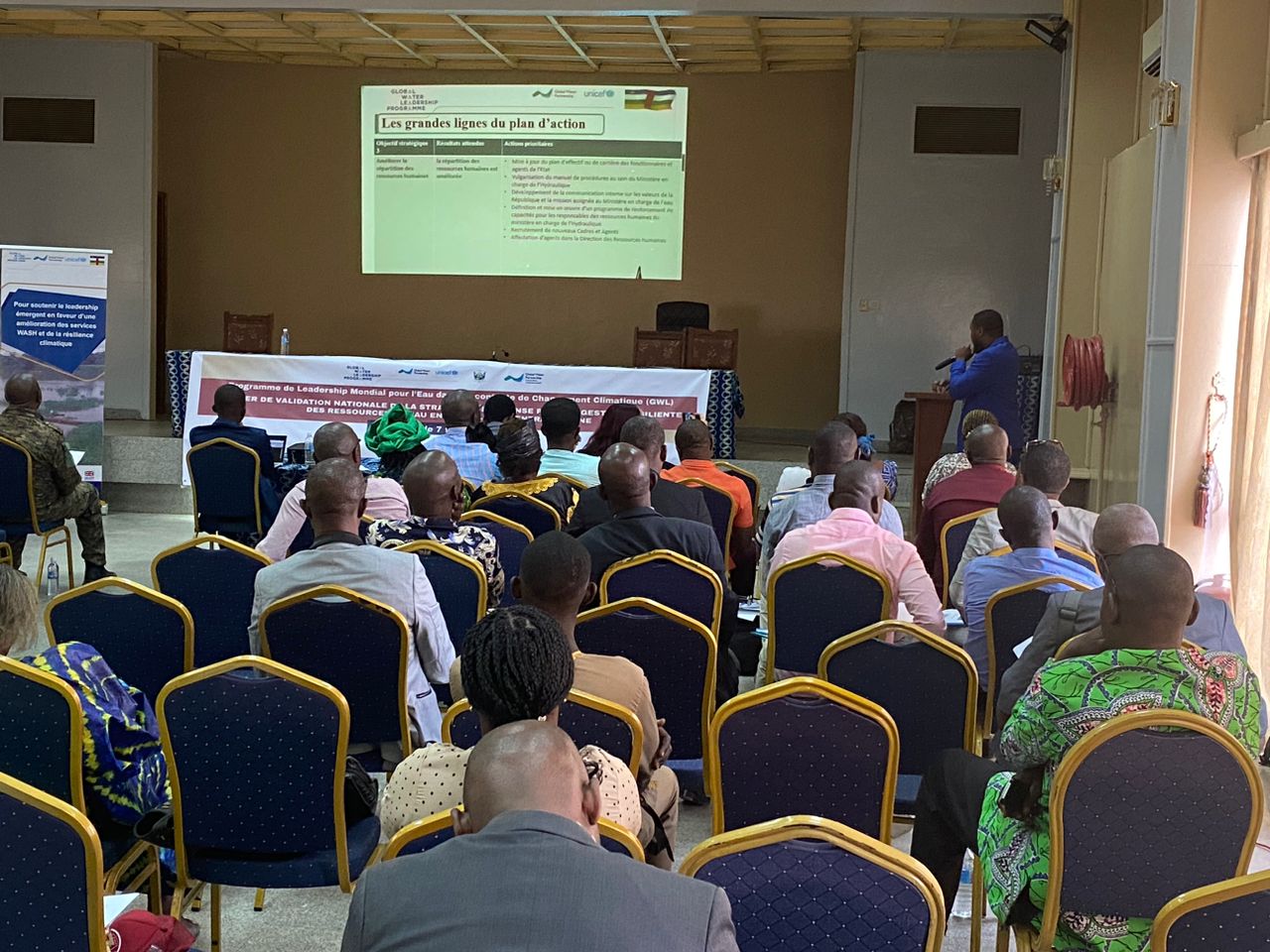The validation workshop is in line with the implementation of the Global Water Leadership in a Changing Climate program (GWL), funded by the Foreign Commonwealth Development Office (FCDO). The program aims to support governments in implementing impactful and inclusive climate-resilient water policies and strategies that will result in better-served and more climate-resilient communities.
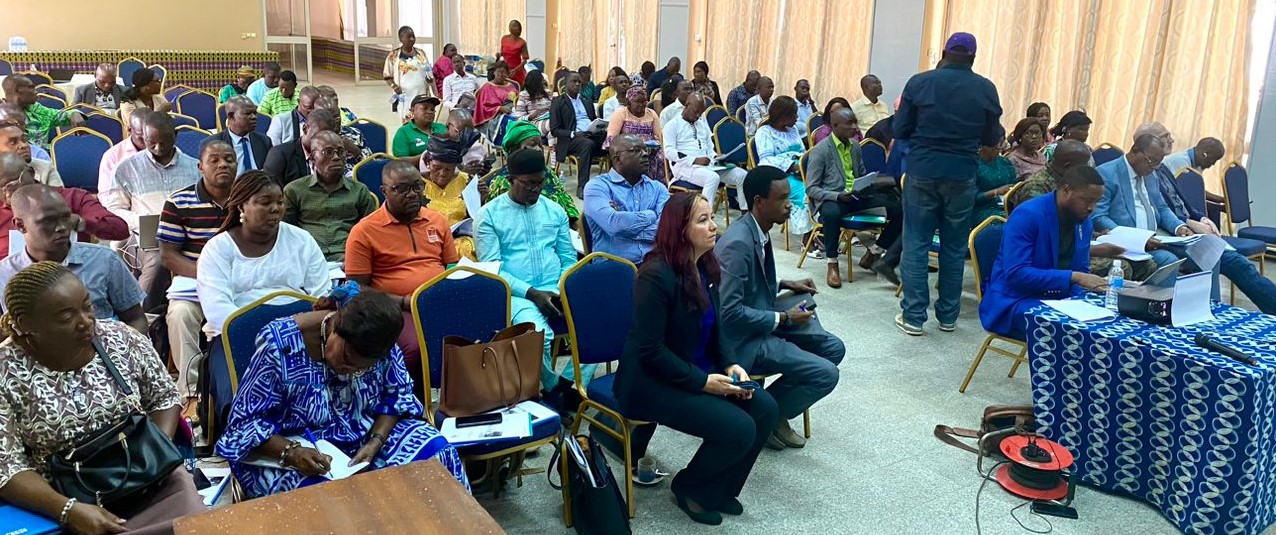
Through a multi-stakeholder consultation process, the program, supported by the country’s Ministry of Water Resources, identified four major barriers restricting the implementation of resilient water resource management in the Central African Republic. These are:
- The poor implementation of existing texts and documents governing the water and climate sectors.
- The lack of an optimized water resources monitoring system
- Poor distribution of human resources
- There is a weak correlation between the allocated national budget and the problems to be solved.
Four GWL working groups were then set up to identify the root causes and propose solutions to these barriers to improve the management of water resources. After a one-year consultation process, the working groups identified priority actions and solutions, which have been put together in a national response strategy document.
The main objective of the validation workshop was to present the response strategy to stakeholders for feedback and validation before its adoption and implementation by the government. While delivering the opening speech on behalf of the Minister of Water Resources, the chief of mission at the Ministry, Mr. Sylvain Guebanda, reiterated that, despite the abundant water resources in the country, efficient management of water resources is a challenge, with water stress remaining a major problem faced by the country’s government.
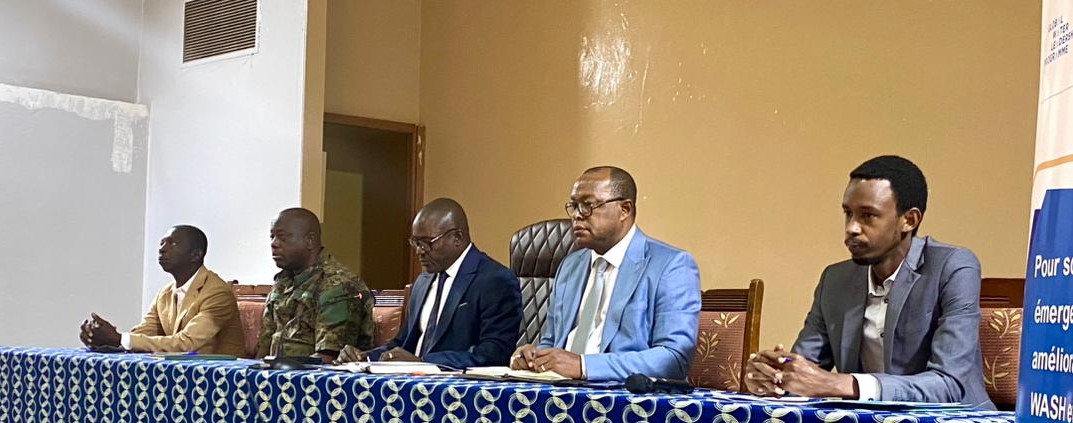
In his words, “This response strategy contains a numbered action plan with priority actions to address these identified challenges and their root causes." He highlighted the commitment of the Ministry of Water towards mobilizing funds through partners for the implementation of the strategy and leading the monitoring and evaluation of the implementation process.
In an interview with the media, GWL global coordinator Lesley Poires said, “I am very impressed by the progress of the GWL program in the Central African Republic. The response strategy reflects one year’s work by very engaged stakeholders, identifying solutions to their water challenges.”
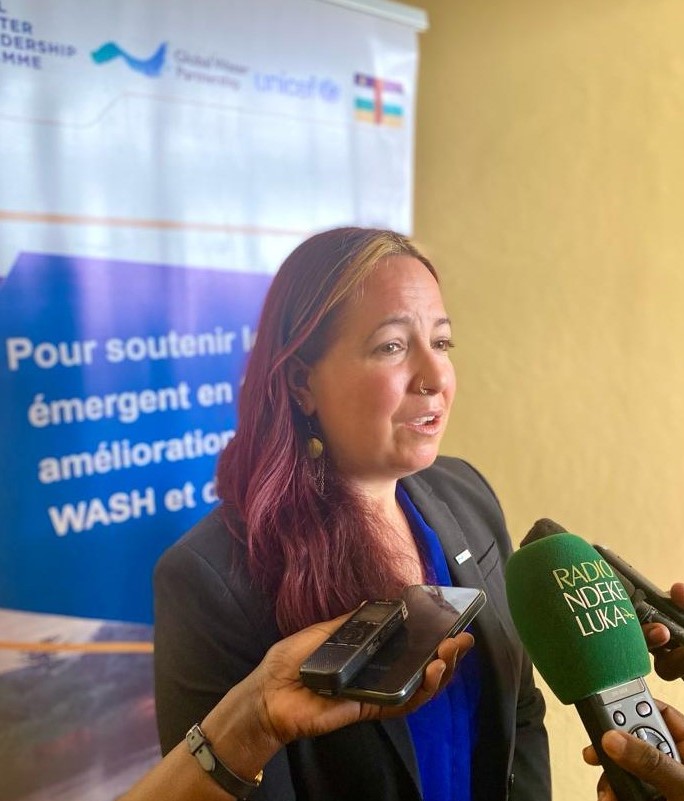
The workshop featured a presentation on the process of elaborating the response strategy, highlighting the three phases of the GWL working group process: identification of the root causes, identification of solutions, and funding mechanisms. GWL program coordinator, Crésus Kodongo made a detailed presentation of the strategy document, presenting all six chapters with a focus on the different priority actions per barrier.
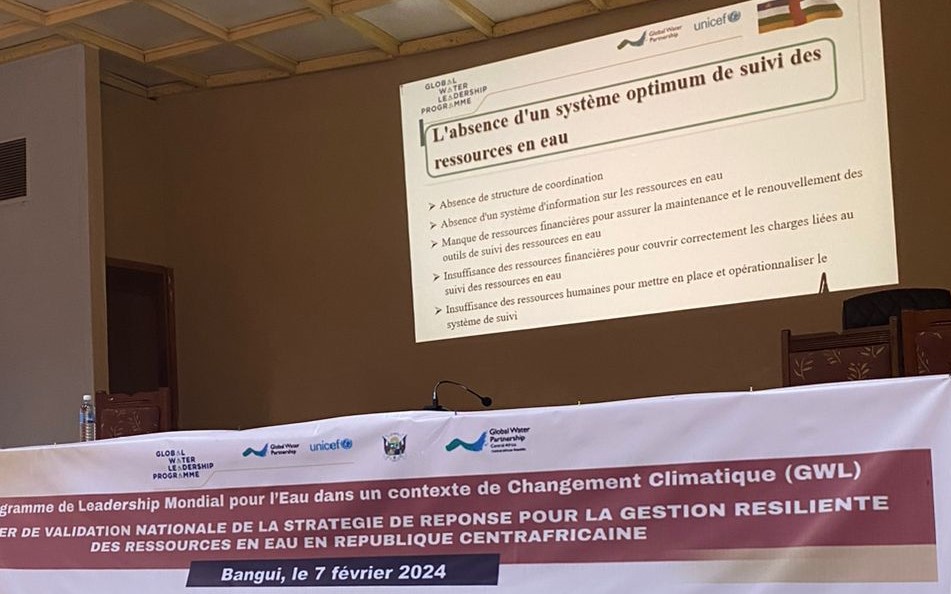
During the group work session that followed, participants made recommendations to improve the quality of the response strategy and ensure that the estimated budget matches the activities in the priority actions. The stakeholders validated the response strategy at the end of the workshop with the reassurance that their feedback would be incorporated into the document before finalization by the GWL team.
For the next steps, the GWL team, in collaboration with the Ministry of Water, will organize a round table with financial and technical partners to advocate and mobilize funding for the implementation of activities in the response strategy. The GWL program ends in March 2024, and the Central African Republic will mark the end of the impactful program with a national workshop to launch the response strategy.
